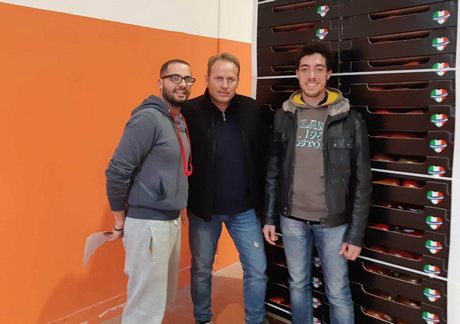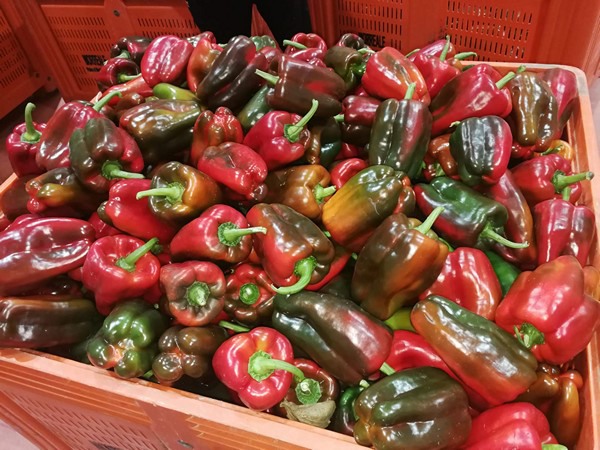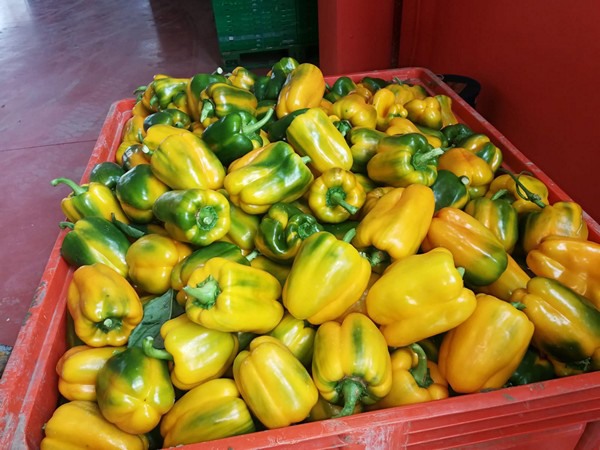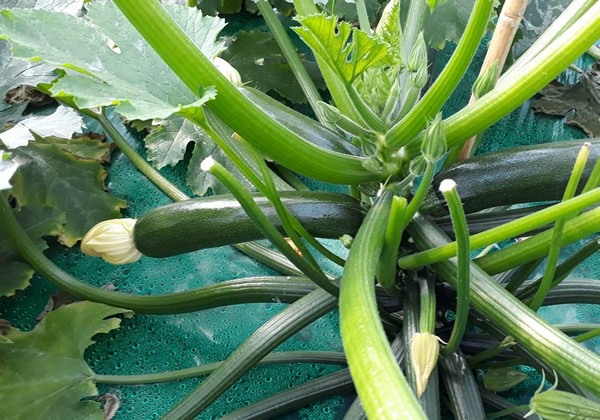According to the producers of the area of Palma di Montechiaro (in the province of Agrigento), the Sicilian pepper season has just started off with an optimal production. The phenological growth stage shows a very good state of health, since the transplantations in early September.
 Antonio Morreale (in the middle)
Antonio Morreale (in the middle)
"We are facing a very exceptional production - asserts Antonio Morreale, administrator of Bio Hortus - So far we haven't had any problem with the weather, nor with plant diseases, which we prevented with simple but effective agronomic approaches. First of all, we always prioritize healthiness, as we use integrated crop management for our production. In our greenhouses, tunnels and plots of land, insects are now a cornerstone of our company's philosophy.
After all," continues the manager, "it is our large-scale retail customers who asks us to respect parameters that are well below the limits imposed by the Italian law, which is known to be among the most restrictive ones in the world in terms of use and residues from pesticides.

Unfortunately, a higher quality production is not always backed up by a better sales campaign. The factors that contribute to the final selling price are always very different and difficult to identify.
"Currently, prices for peppers are around 0.80 cent - explains Morreale - while last year were around 1.00 euro. This difference cannot be explained, since the quality of production to date is even higher than the aesthetic and organoleptic standards. The products grown in tunnels were the first to be requested because their cultivation guarantees a better shelf life, which is of great importance in the supermarket's fruit and vegetable department".

In supermarkets, as well as in orchards, peppers are distinguished by color, such as green, yellow and red. The difference is simply in the degrees of ripeness and in the consumer's personal choice to prefer one color over another."
The demand for yellow peppers is higher only in Apulia - comments the entrepreneur - in the rest of Italy, on the other hand, the request is more oriented towards red peppers. That's unlikely to be the case abroad, like in Northern Europe, where peppers are often eaten raw and green".

The agricultural cooperative Bio Hortus has also started harvesting the first dark green courgettes a few days ago. The first cuts were placed at 0.60 euro/kg production.
Contact information:
Bio Hortus Società Coop. Agricola 
Contrada Senia Albanazzi Snc
92020 Palma di Montechiaro (AG)
Phone.: +39 0922963737
Email: [email protected]
Website: www.biohortusag.com
